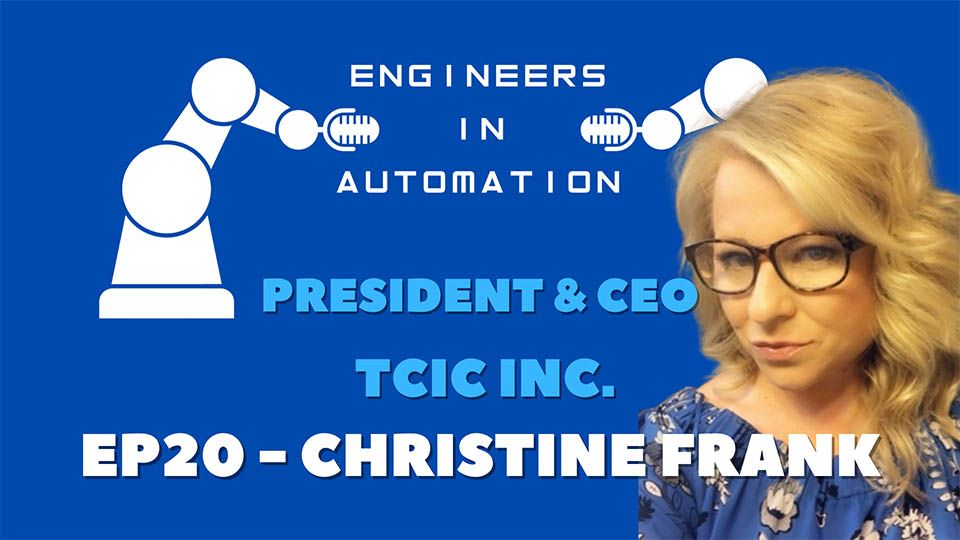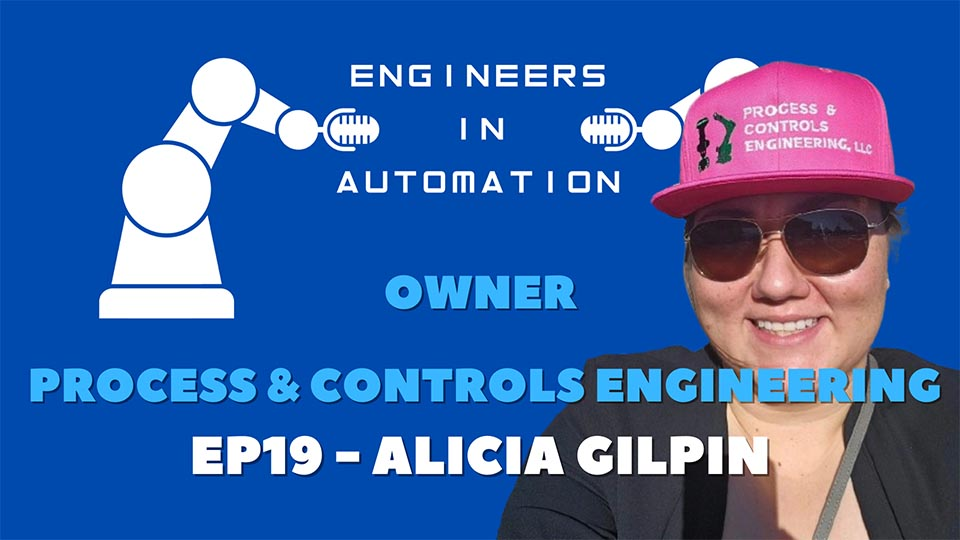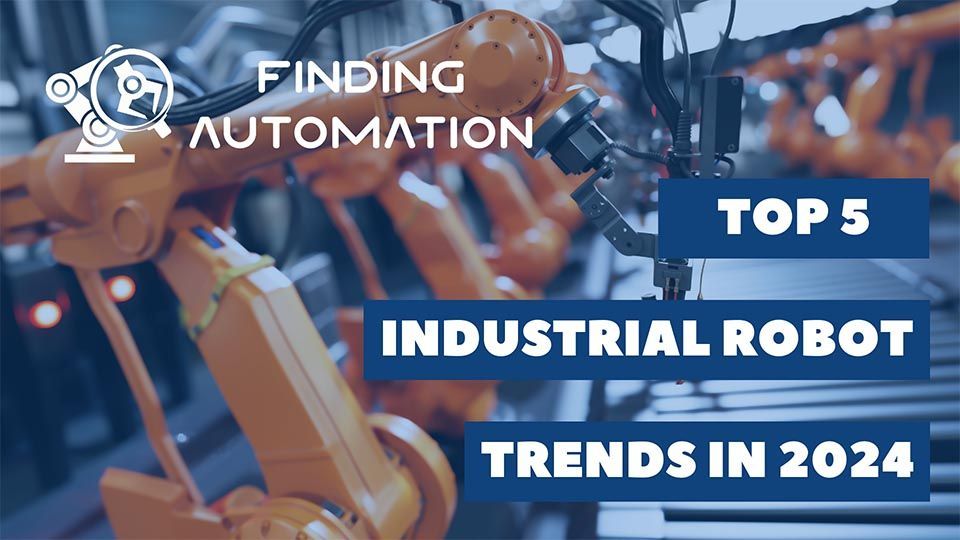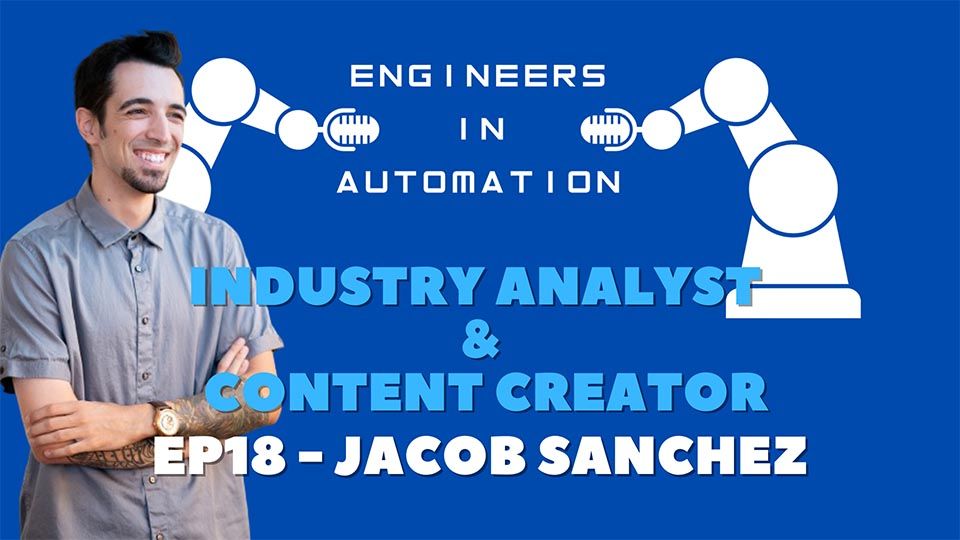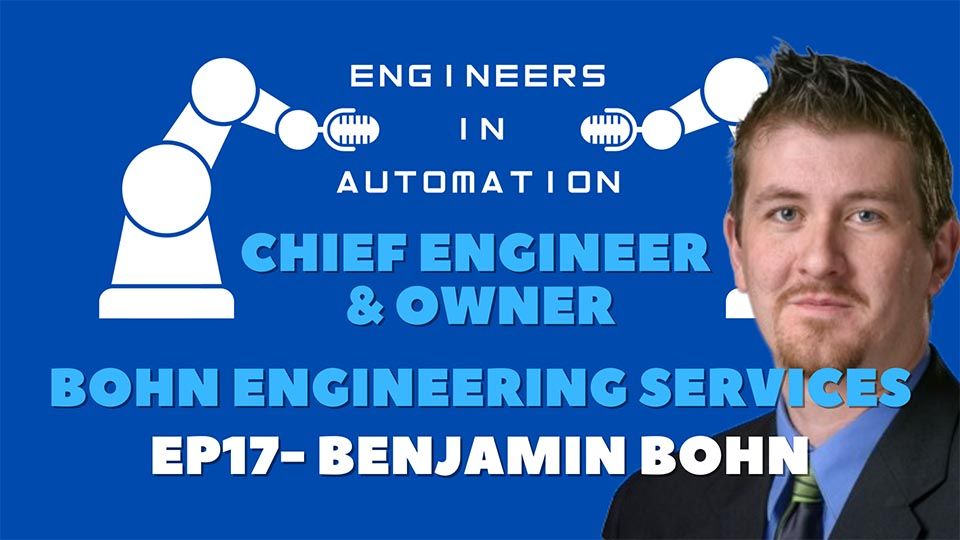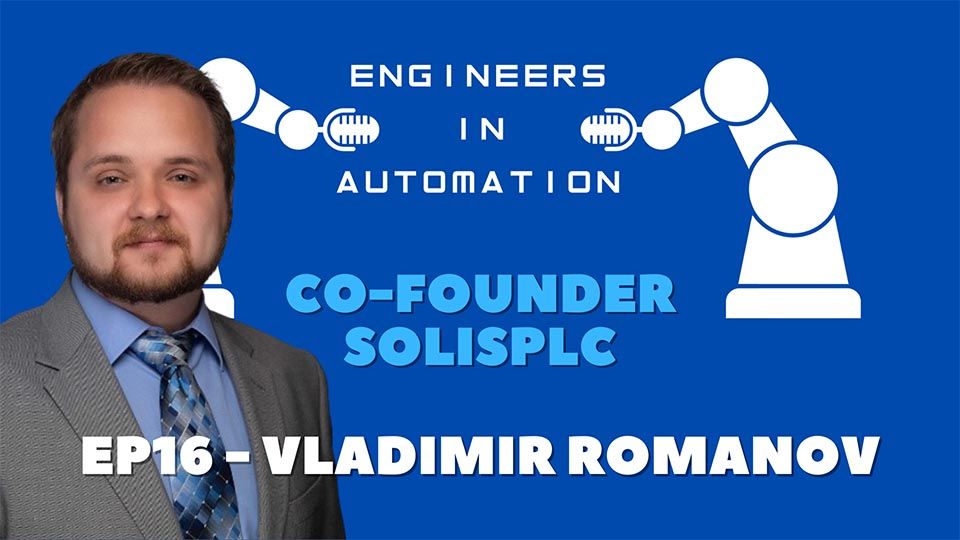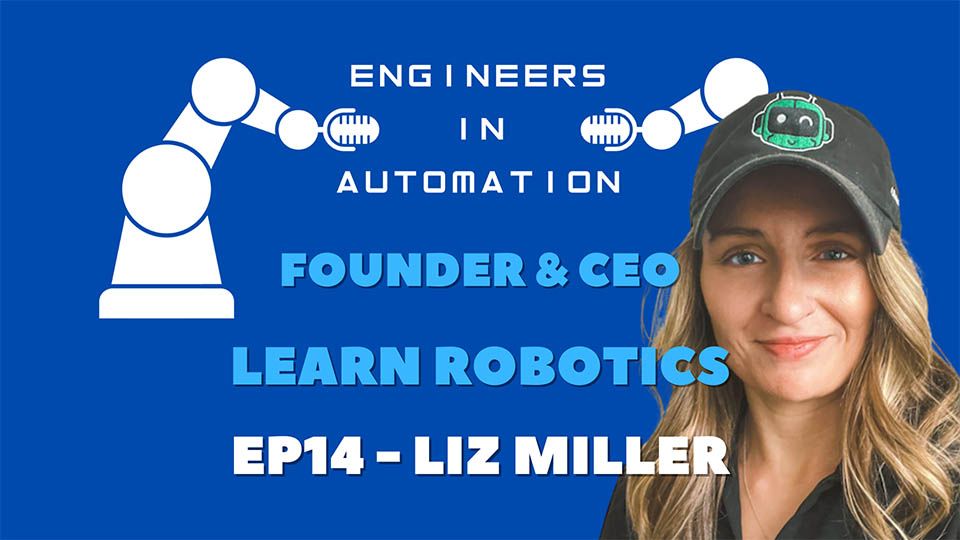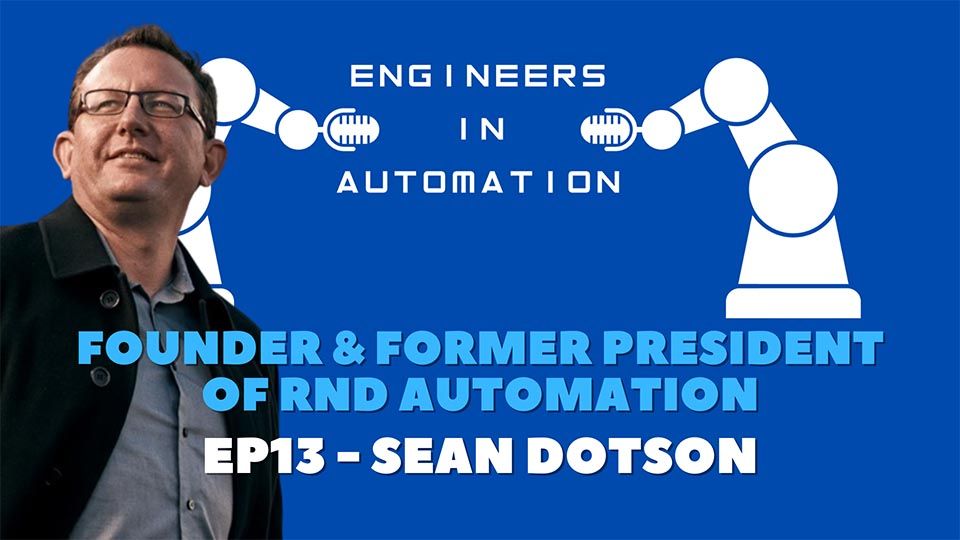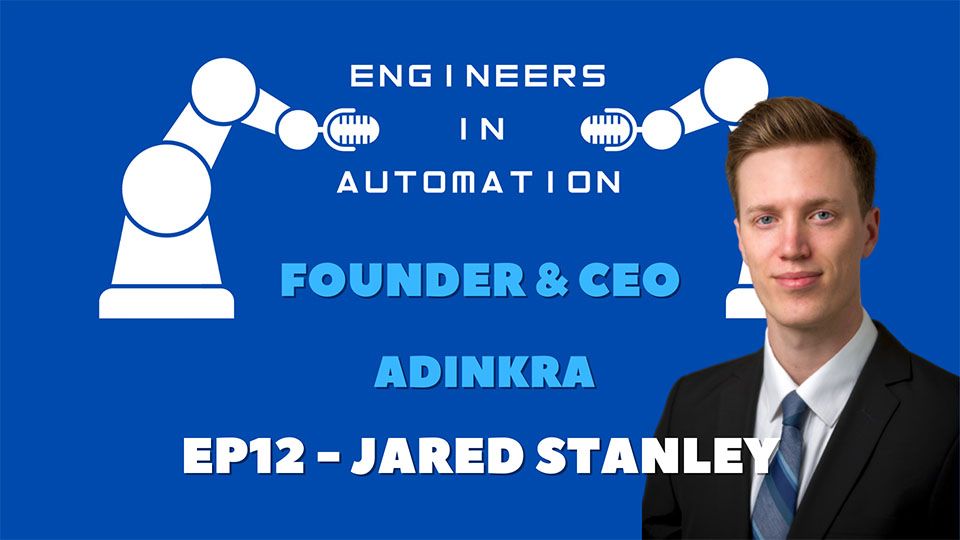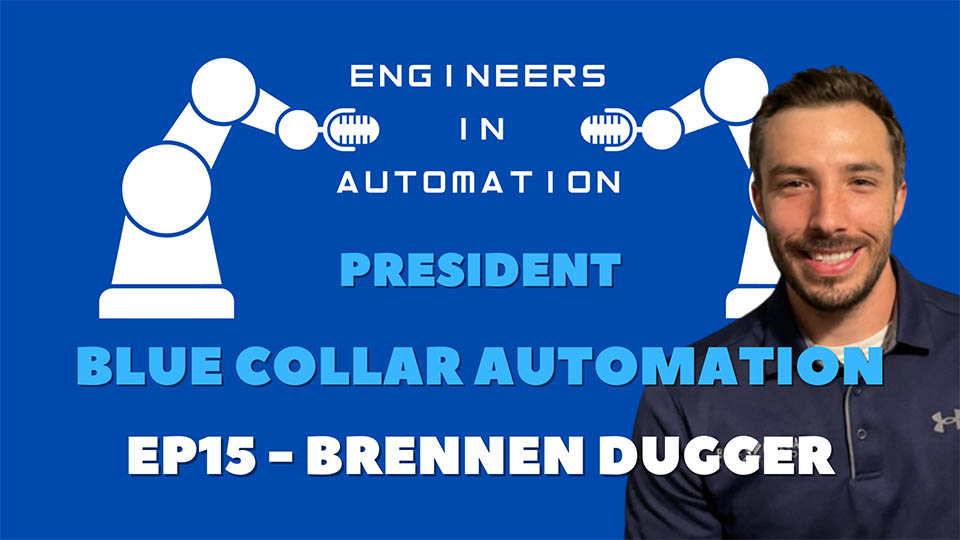Derrick Harrison | Seekers Technical
Engineers in Automation - Derrick Harrison Episode 21
In this episode, we talk with Derrick Harrison, the co-owner of Seekers Technical. We talk about what makes his company unique compared to other staffing and recruiting firms. We discuss the onboarding process for clients and employees. We also discuss some of the lessons learned and mistakes he’s made as a new small business owner.
WATCH THIS ENGINEERS IN AUTOMATION EPISODE:
Keegan Dillon – Host (KD): Hi, my name is Keegan and I'm the host of Engineers in Automation. On today's episode we're going to be talking with Derrick Harrison. He's the co-owner of Seekers Technical. We're going to talk a little bit about owning his staffing and recruiting firm. We're going to talk about some of the struggles he's had the first year. We're also going to talk about the onboarding process for employers and job seekers. Now, let's talk automation!
KD: And welcome to Episode 21. I'm here with Derrick Harrison, he is the co-owner of Seekers Technical. Derek, welcome to today's show.
Derrick Harrison – Guest (DH): Glad to be here.
Derrick Harrison’s Professional Background:
KD: Great. And let's just jump right into it. Can you tell us a little bit of background about yourself?
DH: I’ve been in the industry for over 10 years, in industrial automation. Came from an engineering background. Saw a greater need in the talent solution space. So, we formed a company to kind of solve that.
Seekers Technical:
KD: Okay, great. And what is that company?
DH: Seekers Technical.
KD: Okay, and when did you guys start?
DH: About a year ago. So I've been doing this about a year. So, I think we're in year two now.
KD: Okay. And I always like to ask, how'd you come up with the name?
DH: Um, I just talked to about a couple other buddies, we're trying to come up with cool names. And we felt that was pretty intuitive to say, “it's a search firm.” So seeking. So some people confused, like, I had someone wear this hat at Disney World. And I was like, “Where'd you get that hat?” And, and, and they thought it was like the Harry Potter thing like the seekers. We did not name it off after that.
KD: That's funny. And then, how did you get your start in staffing slash recruiting?
DH: Just did it just picked it up and just started doing it tried to apply some principles I knew from what I learned from how businesses operated and what the industry was like, hired a couple of consultants to try to try to get me up to speed. Get as many certificates as I knew, possibly, which doesn't matter in the end. But I don't like 10 different certifications in recruiting just so I'd be up to speed, but you know, so I just tried flooding myself and learning as much as possible, learning the tricks of the trade. And you really, you learn it by experience and just doing it so.
Staffing and Recruiting:
KD: Yeah. Yep. And I did want to touch on it. You are doing staffing and recruiting? Can you tell me a little bit, to you, what's the difference between the two?
DH: Oh, well, um, I, to be honest with you, I don't I don't know. I think people have different terminologies. I think some people call it contract staffing and contract staffing as temp to hire and recruiting. I guess recruiting is a little bit blanket a blanket statement. I think it maybe encompasses all of that you have to recruit in order to do staffing. So we do staffing solutions, so anything with HR, recruiting, anything that touches that we provide software engineering services and stuff that help meet staffing needs. So, I guess that's, that's my understanding of it.
KD: Okay. And then you kind of mentioned it there. I did want to kind of go into what roles are you helping place? What positions?
DH: Primarily executive positions in industrial automation, whether it's VP sales positions, or control or anything all the way down to controls engineers position or controls, managers, directors, anything that is anything you'd find in a typical systems integrator role, we fill those positions.
Staffing Solutions:
KD: Okay, and then how are you finding these individuals? Do they reach out to you? Or do you go in search for them?
DH: Mostly, it's, it's, it's usually I guess, it's, it's kind of a balance between the two. We get a lot of inbound, but usually you don't get inbound on the REQ you have. So you kind of have to file that and come back to it later. A lot of the candidates we find we go seek them, we get connections, like we're going to Modex next week, so we're they're growing connections growing our network and, and, and we I guess we seek after we search and find.
KD: Yeah, cool. And then and then how are you finding the clients where to place? You know, these open roles? Do they reach out to you guys do you? Again, I'm guessing kind of do the same sort of thing. Reach out to those businesses?
DH: Yeah, we do a bit of both. We've had guys come out of the blue and say they need people yesterday, kind of kind of ordeal, and we have clients that we've developed relationships with over the year and or prior? And who lean on us for that? So, there's a lot of, I guess, organic and created clients as well.
Onboarding Job Seekers:
KD: And then can you kind of walk me through a process? If I apply for your company? If I'm an engineer, or an executive? What's kind of the process? Can you walk me through that.
DH: So I guess, if you're the, if you are looking to apply for a job for a role that we have a REQ for?
KD: Yep!
DH: Okay. So what we like to do, we have a wit, we have a process, or we call it a spear methodology. And, and in that methodology, we take we have, we have contracted talent solutions advisors, that our company utilizes, so it's just industrial, sorry, industry professionals. We’ll use them as like a board or panel to that you would have to be filtered through. And so it's kind of like a pre interview before you meet the client. And then you also are you also conduct a video form interview. And that keeps scheduling pretty optimal, where the candidate can take in can do self service interview on their time. And also the client can view and rate and get feedback on the interview. It has, you know, AI AI-generated transcript of the interview, and you can shortlist etc.
So, once you get through that that stage, you have either a face-to-face or technical interview on-site with the client with the hiring manager. And or you have a, you know, a virtual interview as well. And then that's, that's, that's the last step.
Onboarding Employers:
KD: Okay. And then let's go the opposite way. If I'm a new client, what's kind of the process looking through engineers or executives?
DH: Like if you are wanting to work with us?
KD: Wanting to hire, wanting to hire, right, if I'm looking to hire.
DH: Like wanting to hire me or use me to make a hire?
KD: Like wanting to use you to make new hires.
DH: Yeah, so yeah, so the so what's the customer the client journey utilizing us?
KD: Right?
DH: Okay, so, so the client would be on boarded, we would, we would gather, we would gather the needs, etc., build the Job List, excuse me. We would build the Job List. Sorry, job description. And we would use that information to build out that video form, which is what's used to for the candidate to do the self-interview. We would build them a custom client portal that they can access, and they can see a chart of who's in this state, who's in the what stage of the process they're at. It's like a Kanban board. And they can see all the notes of the candidates, their contact information, and process they are in the stage, as well; as they're inside this portal, there's also access to all the candidates that have done this self-interviewing portal.
So, it's like kind of like a hiring managers dream of, of not having to go back and forth and operate within the email or call or talk back and forth. It's everything we call it Eval View. So they just log in, it's got all their stuff there all the metrics they need, they can make a very informed decision. And it's also got our talent advisors notes on that as well. So they have everything at their disposal on the client portal. So they access that they make the decision there. And we scheduled follow ups.
Solution Provider:
KD: Okay, cool. Yeah. I mean, that sounds very creative. I haven't heard of anything like that. So pretty unique. That's cool. I did want to ask, what's some of the biggest learning curves that you've seen so far, this first year of business? I mean, obviously, the first year, there's always a lot of learning curves to go through. Yeah, what's some of the biggest stuff that you've seen?
DH: Um, I, I think the biggest learning curve is, is understanding that even if you have a solution, even if it's a solution that you're 100% passionate about, and just because like, you know, it's going to work and you know, it's going to solve their solution, solve their problem. It doesn't matter. They're some things are just immovable, and you can't change it, and that's how it is. And I think the biggest learning curve is taking that and just still trying to make your product better. But I guess I guess the learning curve is understanding that even if you have a son solid product not everybody wants it.
KD: So yeah, yeah, yeah, no, I get that I work on that kind of stuff myself. I did want to ask I always like asking this one too since you are a relatively new business, I could list 100 things within my first year. But what was one of the biggest mistakes maybe that you've had so far?
DH: Um, I would say I would say probably possibly. I don't know. What I just said is a pretty big, big mistake making that assumption. So sorry if I'm messing up the podcast, but uh.
KD: No, no. Good.
DH: Um, I guess I would say maybe biggest mistake. That's, there's a lot of mistakes. There's too many of them.
KD: I know. That's what I am saying. My first year I can list a ton.
DH: Maybe not making enough of them. How's that? Yeah, not making enough mistakes, because I wish I'd made more mistakes quicker. How's that?
How Seekers Technical is different from other staffing and recruiting agencies.
KD: Yeah, there you go. That's, that's good. And honestly, you gotta you gotta learn fast, right? Fail fast, I think is a term that a lot of people like to use and, and like said, I know I did 20 different things, I can list right now that I'm thinking of stuff on my website, or, you know, client reach out, or a contractor reach out, etc. It's just, and now looking back at how smooth things run, you could just go, oh, man, if you just did this, or change that around, and you'd be you'd be way better off. So I've always liked to kind of touch on that one. So I also this one is a big one for me, because there is sort of a lot of competition in the recruiting industry and field. So what makes Seekers Technical, different than your competitors?
DH: Um, I would say, I think it's hard to list competitors. I think there's a I think you have to kind of look at it in the right perspective. I think. I don't think there's that many competitors to be honest with you. I think there's your run of the mill general recruiting recruiters. Then there's your niche down recruiters, which I know some really good headhunters that are in that they do an awesome job. And I would definitely say that they're my competitor.
And then there's like me; I've met a guy today via LinkedIn, just one other person, but me I'm kind of infield, which is the differentiator because we provide infield expertise to find that infield talent, right? So we come from the field we, we've, we've been in your boots, we've been the hiring manager, we've been there. And we created this company from the ground up understanding the pain, the exact acute pain of the hiring manager that controls manager, we understand that. And the only thing the essential way we built this company was based off that alone. So, and that's our biggest differentiator. And that sets us apart from many people, I believe.
National Staffing Provider:
KD: Yeah. Yeah, that's good. I did want to touch on too. Are you guys? I believe you're based out of North Carolina. Are you guys regional there? Are you national? Are you just in North Carolina? What's kind of the location that you do a lot of your placements?
DH: National.
KD: Okay. So you guys, you guys have clients and all over the country, then?
DH: Yes.
KD: And then I always like to ask is, do you have a number of clients? How many clients do you have? Do you focus because there's also the kind of thought between, you know, focus on three or four or five clients and just, you know, hammer those out and kill it? Or, you know, spread is far and wide as possible and bring in as many clients that you can. what's kind of your strategy there? Are you guys slowly building? Are you really focused on you know, a handful?
DH: Um, again, we're new, but I think our strategy has been from the get go, we don't want to work with everyone. We've turned down more business than, than when we've been given. And that's kind of I think that's a fair way. We want to make sure that we're a fit for the company. We definitely don't want to convince and beg and, and, and just like, I don't think that makes sense. For us. I think taking a slow approach and finding good a good partnership has been our approach and it's worked very well so far.
KD: Yeah, okay. Wow. That's a good point. I do like to ask you, do you have any advice for somebody who is looking to change jobs? You know, someone who may be stuck in a rut in their current job. Do you have any advice for someone like that?
DH: Um, yeah, I would say. I would say I think one of the most common things I talk to candidates about if they are looking for a job because I don't always have a REQ, I mean, somebody's looking for a project coordinator. I don't have that REQ, my clients are looking for that position. I can't just create that. So oftentimes I'm helping them and giving them advice.
And so one of the things I tell them is, is go talk to a bunch of Headhunters, you don't know who has REQs, like I got list names like Drew or Jordan Humphries. Go talk to them as well go talk to other Headhunters, search up industrial automation headhunting firm or recruiting firm. Find a headhunting firm in your niche and just go talk to them. Because they're privy, they got their ears on the ground, they know what's open, what's coming. And you might, they might know something. So I think putting yourself out there and making connections is good. Get connected with hiring managers. And if you if you are serious about changing jobs, especially if you're having to change industries or a roll, maybe you're not completely familiar with or you think you might be a fit, go ask about or go talk to somebody that's in that shoes already reach out to them, and figure out what it's like, I guess.
Business in 2024:
KD: Yeah, good. Good advice. I'd say. We are, you know, I don't want to say we're wrapped up with Q1 already, but we're getting close. How are you doing this year? So far? Did you set some goals for 2024? How are you doing currently?
DH: 2024 is not as on track as I was hoping it to be. But it not, at least not on the money-making side. We're always working. I mean, I'm working from Monday to Saturday, as many hours as I can, and I love it.
KD: Guilty!
DH: But uh, that's another mistake, you know, I've made in 2023. You’ve gotta put your time and energy around the money-making activities, and then be efficient at it, be quick at it. And I think the better you are at that, the better you're going to be as a business. You so 2024 is, is basically push away the development part of your business. Excuse me, the dogs, put push away your I guess push away all the distraction and stuff and trying to develop your business and all the operations, all that stuff, and get on the sales, get on the money and go go make some things happen. That's kind of where I'm at is trying to have a successful execution portion of 2024. So, I think we're on track. It just hasn't turned all the way.
Derrick Harrison Of Seekers Technical:
KD: Yeah, not yet. Yeah, good. And Derrick, before we head off here, I always like to ask, you know, where can people find you? Where can they find seekers technical? How do people get ahold of you?
DH: Um, text me call me. I'll answer the phone, check out our website or message me on LinkedIn. I mean, you're gonna see me on LinkedIn. I'm trying to be active there.
KD: Good and I know that's how we connected. I'll put all those links in the description as well. So Derrick, I appreciate you sitting down and talking with me. I learned I learned quite a bit here about the recruiting industry. So thank you. So if you enjoyed today's episode, please give us a like, comment, share, and don't forget to subscribe, and we hope that you join us here next time on Engineers in Automation. Thanks!
If you enjoyed that podcast episode, get more information below!
CONTACT OUR GUEST:
Follow Derrick Harrison on LinkedIn.
Learn more about recruiting at Seekers Technical.
SPECIAL THANKS TO OUR SPONSOR:
JOINER Services sponsored this episode. A platform where self-employed engineering contractors can showcase their own talents, and businesses have an opportunity to hire their services. If you want to learn more about JOINER Services and its engineering service platform for contract engineers, follow them on social media or sign up on their website.
